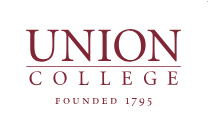
Q: Why should I publish my scholarship Open Access, either in Digital Works or elsewhere?
A: Publishing open access offers tangible benefits to academic authors, such as
Q: Are OA articles peer reviewed?
A: While not every OA article is peer reviewed, many are. OA is compatible with every form of peer review, from traditional double-blind peer review to open post-publication peer review, and OA Journals can be as rigorous as toll-access journals.
Q: Are OA journals legitimate or do they lack rigor? How can I find a prestigious OA journal to publish in?
A: While some OA journals lack rigor and prestige, many have both. To evaluate the quality of an OA journal, see the Open Access Journal Quality Indicators created by the Grand Valley State University Libraries.
Q: Will my publisher allow me to self-archive a pre-print of an accepted article?
A: Probably. Most academic publishers permit self-archiving (Green OA), though not all advertise it and it can require negotiation. For an example of faculty negotiating self-archiving with academic publishers, see Pandelis Perakakis's 2015 blogpost, "How to negotiate with publishers: an example of immediate self-archiving despite publisher’s embargo policy."
Q: Why is OA concerned with copyright?
A: A key challenge for OA are publisher-author copyright contracts, which require authors to transfer copyright to publishers so that publishers can generate income from the publication without being undermined by others selling the resource or making it available for free. OA Advocates seek to retain copyright for authors, rather than publishers, so that authors can make their work OA. For more on copyright, see our Copyright LibGuide.
Q: Why is OA a concern of academic libraries?
A: OA is a central concern of academic librarians for at least two reasons:
First, academic libraries are the front line of the “serials crisis”: library budgets are decreasing while the number and cost of serials (particularly in the sciences) are increasing. Libraries therefore cannot afford to provide access to serials without making cuts elsewhere.
Second, academic libraries have access to digital media, server space, and technological know how, in addition to their expertise in metadata, storage, and access of scholarship--all important aspects of publishing in the digital age. They are therefore able to take advantage of the democratic affordances of new media to make scholarly communication more open and affordable.
Open-access initiatives at academic libraries are often overseen by scholarly communication librarians. These librarians explore and advocate ways to solve the serials crisis by opening access to scholarly resources.
This includes drafting open access policies; advocating for open access; managing the digital repository; advising on copyright, licensing, and fair use; exploring and promoting the use of digital publishing technology; and transforming libraries into publishers by merging libraries with presses and managing library publishing.